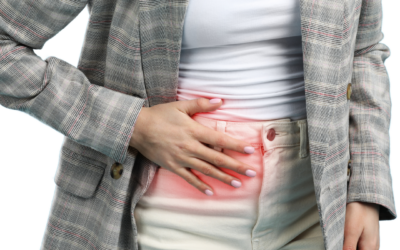In functional medicine, it is often said, “When in doubt, treat the gut.”
So, what exactly is the job of the gut anyways?
The more appropriate term for the gut is the Digestive System. Within the Digestive System is the GI tract, which is a continuous hollow organ with openings to the external environment on either end. It’s a hollow space within the body. It comprises the mouth, esophagus, stomach, small intestine, large intestine, and anus.
I think of the GI tract as separate from your body. Food passes through this system. Some things, like vitamins and nutrients, are absorbed, and waste is passed on through. For example, if you swallow a penny, it travels through this hollow tube and will come out the other end. I don’t recommend testing this, by the way. Trust me.
In addition to these hollow organs, other solid organs are considered part of the digestive system. These organs are:
The liver. The liver has many jobs, but primarily its job is to rid the body of toxins, make bile to be used to digest fat, and store energy for later use in the form of glycogen. So, as you can see, it’s a pretty important organ.
The pancreas. The pancreas, also essential for life, produces digestive juices to aid in the breakdown of food into absorbable nutrients. The pancreas also produces insulin. Insulin’s job is to bring sugar from the blood into the cell for fuel.
The gallbladder. You probably know someone who has had their gallbladder removed. Maybe that someone is YOU. The gallbladder isn’t necessary for life. However, its job is to store the bile produced by the liver and release it into the small intestine after a fatty meal to help with digestion. If you don’t have a gallbladder, the liver releases this bile as it’s being made. This works too, but the bile is less concentrated and continuously drains into the intestine. For some patients, this can lead to loose stools.
For optimal health, you need to EAT the right food, DIGEST it properly and ABSORB it through a healthy gut wall. There is a lot that can go wrong here. Eating the right food alone isn’t enough. A healthy gut is essential for ideal health.
Let’s look at each of these a little closer.
EAT the right food.
The less processed the food is, the better. I like to eat whole foods, mostly organic. I choose to eat a wide array of fruits and vegetables. I also include lean protein and healthy fat in my diet. What you eat are the building blocks for your body. You literally are what you eat. Choose high-quality building materials to feel great!
DIGEST it properly.
Choosing the right food isn’t enough. Your body’s digestive system has to be working properly to break that food down into smaller pieces to be used. This process starts in the mouth with the salivary glands.
It’s important to chew your food thoroughly to maximize this part of the process. Then the food moves down the esophagus to the stomach. Additionally, you need adequate stomach acid to further break the food down in the stomach.
NOTE: This is a massive problem for people who suffer from heartburn. Heartburn develops when the acid that is supposed to be in the stomach moves up into the esophagus. This is painful and leads to treatment options that often include acid blockers. The problem is these medications block acid production altogether, which leads to symptom relief but also poor digestion. The digestion process also requires a properly functioning liver and pancreas to break down foods into usable components further.
ABSORB the nutrients through a healthy gut wall.
So after you choose the right food and digest it properly, you still need to absorb it through a healthy gut wall to get the benefit of that nutrient-dense food. Often the gut wall is inflamed, secondary to dysbiosis. So fixing dysbiosis is an essential step in enhancing the absorption of nutrients.
As you can see, a lot goes on in the digestive system, and there are many places where things can go wrong. I hope I haven’t stressed you out because there is a lot you can do to maximize your gut and health.
First of all, take a moment to congratulate yourself. Knowledge is power, and learning about the gut is the very first step to healing it! Secondly–pick one small thing you can do to help your digestion and implement it.
Here are some options:
- Choose the right foods. Buy your food from the perimeter of the grocery store. I tell my kids that if they can live in our pantry for a long time without going bad, it probably isn’t good for them.
- Commit to chewing your food thoroughly. I’ve seen estimates ranging from 20-100x as the appropriate amount of times to chew your food before swallowing. That’s a lot! The bottom line is chewing your food thoroughly helps!
- Avoid acid blockers. If you have heartburn, find out why. It isn’t acceptable to take an acid-blocking medicine indefinitely. The consequences are damaging.
- Add probiotics and prebiotics to your diet. To properly absorb your food, you need a healthy balance of bacteria in your gut. One way of improving this is to enhance the good bacteria living in your gut by eating fermented foods regularly. Additionally, getting enough fiber is fuel for healthy gut bacteria. So add probiotics to your diet via fermented foods and prebiotics to your diet via fiber.
Small actions like these build up over time to make a huge difference in your health.
You’ve got this!
Dr. Libby
P.S — Register for my 16-week program The Gut Restoration. This program will test/optimize your gut health. We’ll kill the bad guys, support the guys, and fortify the gut lining!





